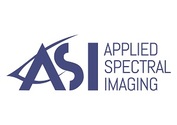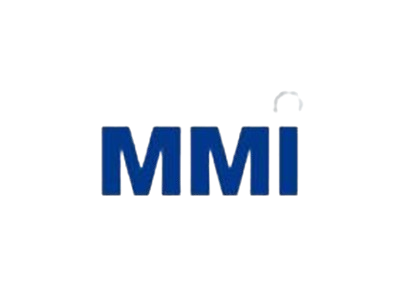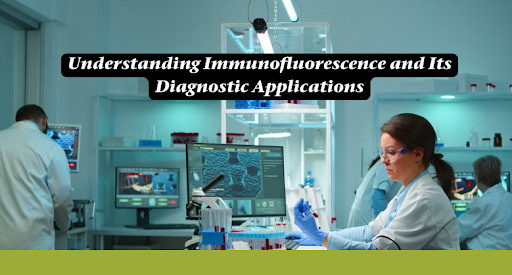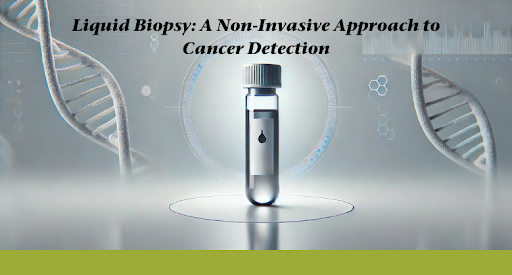DSS: Redefining Biotechnology & Life Science in India
- About Us
- Products & Services
PRODUCTS & SERVICES
-
Kits Reagents & Consumables
- Cytogenetics
- Dyes
- Fluorescence In Situ Hybridization (FISH)
- High-Performance Liquid Chromatography (HPLC)
- Histology
- Immuno Histo Chemistry (IHC)
- Molecular Pathology & Diagnostics
- Multiplex Ligation-Dependent Probe Amplification (MLPA)
- Nucleic Acid Extraction
- PharmDx
- Real Time PCR
- Sequencing
- Special Stains
-
Instruments
- Biosafety
- Cameras
- Cell Culture monitoring
- CO2 Incubator
- Cytogenetics Systems
- Digital Slide Scanners
- Electrophysiology Systems
- Endoscopy System
- Fluorescence In Situ Hybridization (FISH)
- H&E
- Immuno Histo Chemistry (IHC)
- Microfluidics
- Microscopes
- Molecular Pathology & Diagnostics
- Multichannel Imaging Systems
- Real Time PCR
- Special Stains
- Software
- Accessories
- Advanced Material
-
Kits Reagents & Consumables
- Applications & Specialities
All Applications & Specialities
- Brands
- Contact Us
-

-
 0
0
- ☰
- About Us
- Products & Services
-
Kits Reagents & Consumables
- Cytogenetics
- Dyes
- Fluorescence In Situ Hybridization (FISH)
- High-Performance Liquid Chromatography (HPLC)
- Histology
- Immuno Histo Chemistry (IHC)
- Molecular Pathology & Diagnostics
- Multiplex Ligation-Dependent Probe Amplification (MLPA)
- Nucleic Acid Extraction
- PharmDx
- Real Time PCR
- Sequencing
- Special Stains
-
Instruments
- Biosafety
- Cameras
- Cell Culture monitoring
- CO2 Incubator
- Cytogenetics Systems
- Digital Slide Scanners
- Electrophysiology Systems
- Endoscopy System
- Fluorescence In Situ Hybridization (FISH)
- H&E
- Immuno Histo Chemistry (IHC)
- Microfluidics
- Microscopes
- Molecular Pathology & Diagnostics
- Multichannel Imaging Systems
- Real Time PCR
- Special Stains
- Advanced Material
- Software
- Accessories
-
Kits Reagents & Consumables
- Applications & Specialities
- Brands
- Brand - Life Sciences
- 3i
- ABBERIOR INSTRUMENTS
- Abbott Molecular
- ADS Biotec
- APPLIED SPECTRAL IMAGING
- BioAir Tecnilabo
- DAKO (AGILENT)
- Eden Tech
- Elveflow
- ENTROGEN
- EUROCLONE
- EVIDENT
- Genea
- Genial Helix
- Hamamatsu Photonics
- Invivoscribe
- MASTER DIAGNOSTICA
- MBF BIOSCIENCE
- Medical Tek Co. Ltd
- MILESTONE MED SRL
- Molecular Machines & Industries
- MRC HOLLAND
- NeoDx
- Onward Assist
- PHOTOMETRICS
- Profound
- SCIENTIFICA
- µCyte
- Brand - Industrial
- Brand - Life Sciences
- News & Events
- Career
- Contact Us
- Testimonial
- Blog
- R&D
- CSR
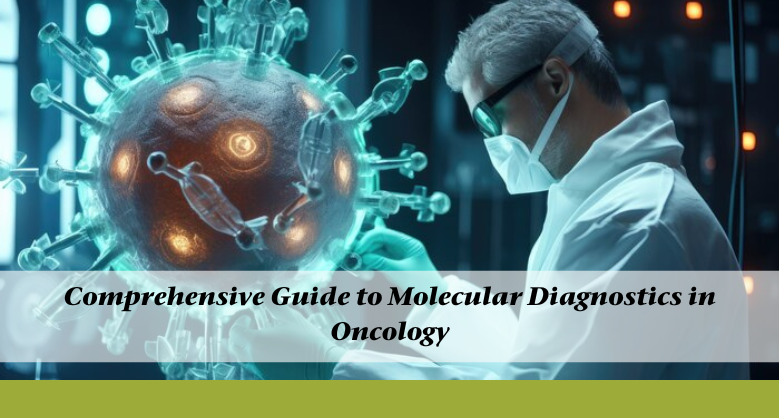
Comprehensive Guide to Molecular Diagnostics in Oncology
BY DSS Imagetech Pvt Ltd May 9, 2024
The diagnosis of cancer can be overwhelming for patients and their families. Traditional treatment methods such as radiation and chemotherapy can often be painful and have life-altering side effects. However, there is hope with the evolution of molecular diagnostics in oncology treatment. These innovative technologies can accurately diagnose different types of cancer and tailor treatment plans to individual patients. In this detailed blog, we will take a closer look at how molecular diagnostics is revolutionizing oncology treatment, including what it is, how it works, and the benefits it provides. By the end of this article, you will have a better understanding of how this groundbreaking technology is offering new hope for cancer patients.
Understanding Molecular Diagnostics
Molecular diagnostics involves the analysis of genetic and molecular changes within cells, allowing for the identification and characterization of various diseases, including cancer. By examining specific genes, proteins, and other molecular markers, molecular diagnostics helps clinicians make accurate diagnoses, predict disease outcomes, and determine optimal treatment strategies.
Key Techniques in Molecular Diagnostics
- Polymerase Chain Reaction (PCR): PCR is a widely used technique that amplifies small sections of DNA, enabling the detection of specific genetic mutations or alterations associated with cancer. It is instrumental in identifying gene mutations, gene fusions, and genetic rearrangements, aiding in the selection of targeted therapies.
- Next-Generation Sequencing (NGS): NGS enables the simultaneous sequencing of thousands of genes, providing a comprehensive view of the genetic landscape of cancer cells. It is particularly useful in identifying novel mutations, assessing tumor heterogeneity, and predicting treatment response.
- Fluorescence In Situ Hybridization (FISH): FISH is a technique used to visualize and quantify specific DNA sequences in individual cells. It is commonly employed to detect gene amplifications, deletions, and translocations in cancer cells, aiding in the diagnosis and prognosis of various malignancies.
Applications of Molecular Diagnostics in Oncology
- Early Cancer Detection: Molecular diagnostics plays a crucial role in the early detection of cancer. By identifying specific genetic alterations or biomarkers associated with malignancies, molecular tests can detect cancer at its earliest stages, enabling prompt intervention and improved patient outcomes.
- Precision Medicine: Molecular diagnostics allows for personalized treatment approaches based on an individual’s unique genetic profile. By identifying specific genetic mutations or alterations, clinicians can select targeted therapies that are more likely to be effective and reduce the risk of adverse reactions.
- Minimal Residual Disease (MRD) Monitoring: Following cancer treatment, molecular diagnostics can be used to monitor minimal residual disease, which refers to small amounts of cancer cells that remain in the body. By detecting and quantifying these cells, clinicians can assess treatment responses and make informed decisions regarding further therapeutic interventions.
- Prognostic Evaluation: Molecular markers identified through diagnostic testing can provide valuable information regarding the prognosis of cancer patients. By analyzing specific genetic alterations, clinicians can predict disease progression, assess the likelihood of recurrence, and determine optimal treatment strategies.
Impact on Patient Care
The integration of molecular diagnostics in oncology has transformed patient care in numerous ways:
- Enhanced Diagnostic Accuracy: Molecular diagnostics has significantly improved diagnostic accuracy, enabling clinicians to detect cancer at earlier stages and differentiate between various subtypes of malignancies. This facilitates the selection of appropriate treatment options and improves patient outcomes.
- Personalized Treatment Selection: Molecular diagnostics allows for the identification of specific genetic alterations, aiding in the selection of targeted therapies. This personalized approach enhances treatment efficacy, minimizes side effects, and improves overall patient satisfaction.
- Improved Monitoring of Treatment Response: Molecular diagnostics enables real-time monitoring of treatment response, allowing clinicians to modify therapies promptly if necessary. This ensures that patients receive the most effective treatment and reduces the risk of disease progression or relapse.
- Facilitation of Clinical Trials: Molecular diagnostics plays a vital role in patient recruitment for clinical trials. By identifying patients with specific genetic alterations, researchers can select participants who are more likely to respond to investigational therapies, leading to more efficient and successful clinical trials.
Challenges of Applying Molecular Diagnostics to Oncology Treatment
While molecular diagnostics has brought significant advancements to the field of oncology, some challenges and limitations need to be addressed. It is important to understand these factors to ensure the responsible and effective use of molecular diagnostics in clinical practice.
- Standardization and Validation: Standardization of molecular diagnostic tests is crucial to ensure consistent and reliable results across different laboratories. Variability in testing methodologies and interpretation can lead to discrepancies and affect patient management decisions. Validation studies are essential to establish the accuracy, sensitivity, and specificity of molecular tests before their implementation in routine clinical practice.
- Cost and Accessibility: Molecular diagnostic tests can be expensive, limiting their accessibility, particularly in resource-limited settings. The high cost of equipment, reagents, and data analysis can hinder the widespread adoption and affordability of these tests. Efforts are needed to make molecular diagnostics more cost-effective and accessible to a broader population.
- Tumor Heterogeneity: Cancer cells exhibit genetic and molecular heterogeneity, which can pose challenges for molecular diagnostics. Sampling a single tumor biopsy may not capture the complete genetic profile of the disease, leading to incomplete or inaccurate results. Ongoing research aims to develop strategies to overcome tumor heterogeneity and improve the representativeness of molecular tests.
- Interpretation of Variants of Uncertain Significance (VUS): Molecular diagnostic tests can detect genetic variants that are of uncertain clinical significance. Variants of uncertain significance (VUS) are genetic alterations that have not been definitively characterized as pathology software or benign. The interpretation and management of VUS can be challenging, as their clinical implications may not be fully understood. Collaboration among clinicians, geneticists, and bioinformaticians is necessary to determine the clinical relevance of VUS and guide patient management decisions.
- Ethical and Legal Considerations: The use of molecular diagnostics raises ethical and legal considerations related to patient privacy, data sharing, and genetic discrimination. Protecting patient confidentiality and ensuring informed consent are essential when dealing with sensitive genetic information. Regulatory frameworks need to be established to address these ethical and legal challenges and ensure the responsible use of molecular diagnostics.
Conclusion
Molecular diagnostics has revolutionized the field of oncology, offering new insights into cancer detection, prognosis, and treatment selection. By analyzing specific genetic and molecular alterations, clinicians can provide personalized and targeted therapies to patients, leading to improved outcomes. As technology continues to advance, molecular diagnostics holds tremendous promise for the future of oncology, paving the way for more precise and effective cancer care.
Latest Articles
Understanding Immunofluorescence and Its Diagnostic Applications
BY admin March 25, 2025
Immunofluorescence testing ranks among medicine’s most reliable diagnostic tools, especially when detecting autoimmune diseases. The sensitivity rates reach 100% for certain conditions. Medical professionals have managed to keep this technique at the heart of diagnostics since 1942. It provides exceptional accuracy in identifying diseases in multiple organ systems. The immunofluorescence...
Read MoreLiquid Biopsy: A Non-Invasive Approach to Cancer Detection
BY admin March 25, 2025
Cancer is the second leading cause of death worldwide. This grim statistic highlights the need to save lives through better detection methods. We have a long way to go, but we can build on this progress in cancer diagnostics, where liquid biopsy stands at the vanguard of medical advancement. Liquid...
Read MoreEnhance Genetic Testing with Advanced FISH Instruments from DSS Imagetech
BY admin March 18, 2025
One of the most revolutionary techniques of modern molecular biology and genetics, fluorescence in situ hybridization is a precision-based technique known widely for use in genetic diagnostics and research, helping to determine chromosomal anomalies, gene mutation, and many more genetic markers. DSS Imagetech is a trusted company dealing with biotechnology...
Read More




